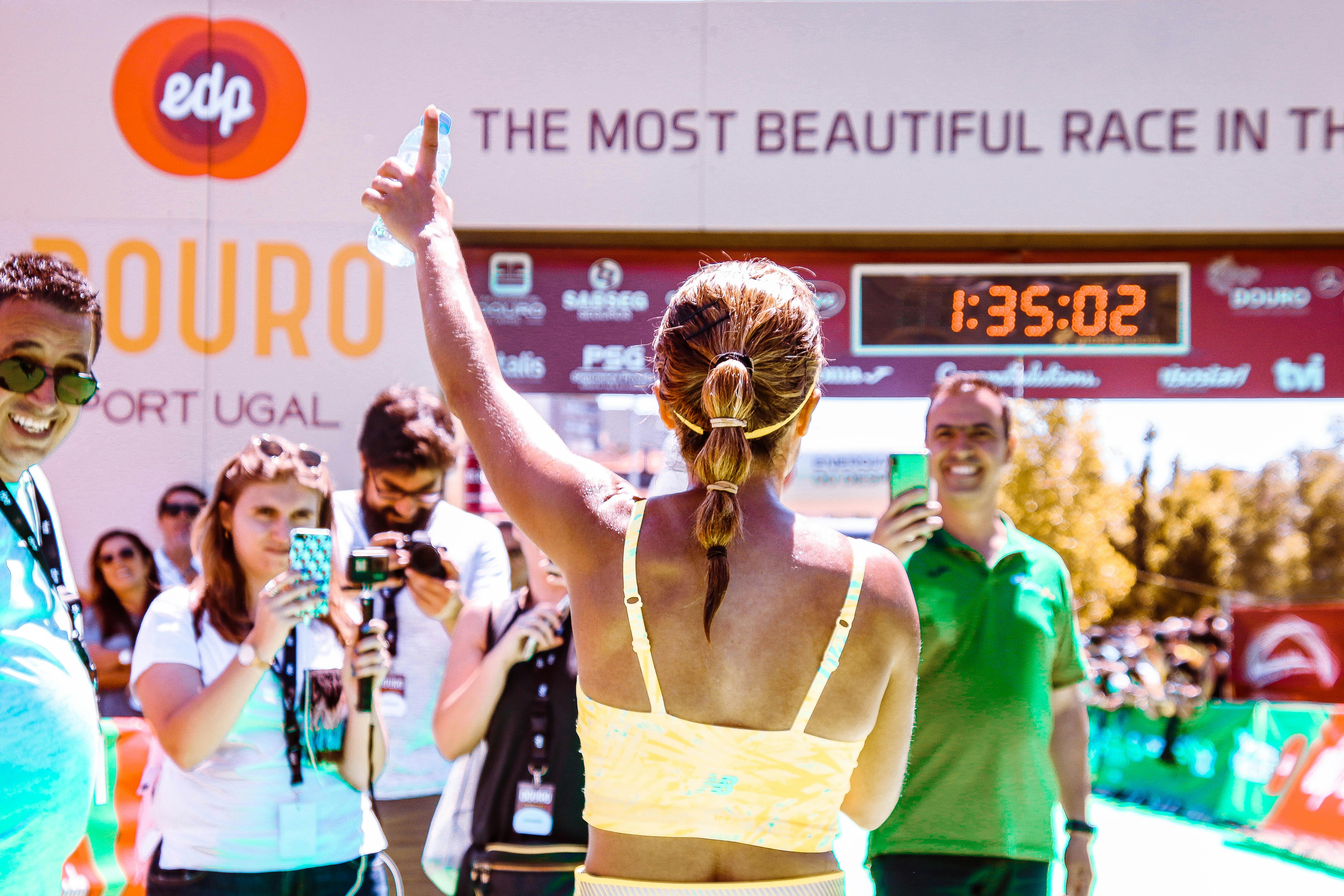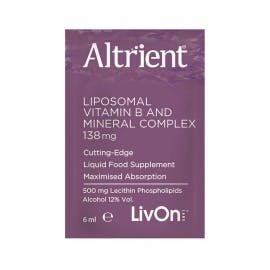BEST FOODS FOR MARATHON RUNNERS: PRE-RACE FUEL & POST-RUN RECOVERY
Marathon day is approaching, and if you’re one of those fitness enthusiasts hoping to cross the finish line in good time, you’ve probably already spent weeks pounding the roads. But are you on top of your body’s nutritional needs? Proper nutrition before and after a marathon is crucial for optimal performance and recovery so it's worth finding out what you should and shouldn’t be eating. Here are some insights into effective dietary strategies for both phases.
WHY NUTRITION MATTERS
Running a marathon is a test of endurance, strength, and mental resilience, but even the best training plan can fall short without proper nutrition. The right fuel before a race can maximize energy stores, while smart recovery choices help the body repair and adapt. Understanding how nutrition impacts performance and recovery can make the difference between hitting the wall and crossing the finish line triumphant. Here are our top tips:

PRE-MARATHON NUTRITION
Manage Body Weight
For the highly competitive runner, one thing to consider before the event is that you maintain a healthy weight. People with the least body fat have faster racing times. Excess body weight increases the energy you need for running. Shedding just 1Ib can make a difference to your marathon time.
Get Your Carbs In
Carbohydrates are the body’s primary fuel source for high-intensity endurance exercise, making them essential for maximizing muscle glycogen stores before a marathon. Proper race preparation should focus on strategies to optimize these energy reserves. Research indicates that consuming a carbohydrate-rich meal before an endurance event can significantly enhance performance. 1 Compared to fasting or consuming a low-carb meal, a high-carbohydrate meal has been found to extend time to exhaustion by up to 8%. 2
Carb-Loading Strategy
36-48 Hours before the marathon – consume 10-12 grams of carbs per kg of body weight per day to increase muscle glycogen stores effectively. 1-4 Hours before the marathon – consume 1-4 grams of carbs per kg of body weight. This meal helps to maintain blood glucose levels and optimises liver glycogen stores.
Best Foods For Runners
Meals and snacks should be based on low-fibre, carbohydrate-rich foods, avoiding significant sources of resistant starch. Simple carbohydrates are ideal as they are low in fibre, easier to digest and break down rapidly into glucose. Examples include:
- White bread
- White breakfast cereals such as puffed rice/cornflakes
- White rice, pasta or noodles
- Potatoes, cooked and eaten hot (to avoid the creation of resistant starch with cooling)
- Pulp-free fruit juice and sugary drinks
- Confectionary, jam and honey
- Cakes and desserts based on white flour
- Sports drinks, gels and confectionary
Protein Intake
Protein together with carbohydrates can improve protein balance and absorption, helping with muscle repair and recovery. A balance of approximately 50g of carbohydrates to 10g of protein is ideal. 3
Perfect Energy Partners
While carbohydrates and electrolytes often take the spotlight, vitamin B-rich foods are also crucial for unlocking the energy in your food. Niacin, thiamine, vitamin B2, B6, B12 & pantothenic acid are key players when it comes to energy metabolism so it pays to find a place for them in your meal plans.
The best time to focus on your B vitamin intake would be in the weeks leading up to the race to support muscle-building and training adaptations. Utilising foods that include a range of B vitamins will also help to reduce tiredness and fatigue. Examples of whole foods that are rich in B vitamins include:
- Brown rice + chicken stir fry with mushrooms and broccoli
- Oats with milk, banana, nuts and chia seeds
- Eggs with spinach on wholegrain toast
Some runners choose to support their energy metabolism by taking a daily B-complex multivitamin in the lead-up to race day, especially if training demands have been intense. This can be a smart addition, provided it complements a nutrient-rich, whole-food diet rather than replaces it.
Foods to Avoid in Your Pre-Race Meal
To minimise the risk of digestive issues during your run, it’s best to limit foods high in fat, fibre, and protein - especially if you’re prone to gut discomfort. Avoid dried fruits, raw vegetables, and uncooked fruit, as their fibre content can contribute to bloating or bowel urgency mid-race. 4 Try to eat at least two hours before the race to give your body time to digest the food.
Hydration Protocol
The importance of adequate hydration cannot be overstated. During a marathon, average sweat rates are between 0.5-1.5 litres of fluid every hour. Dehydration places such a strain on the body that even very small fluid deficits impair running performance. In addition to drinking plenty of water consider adding some beetroot juice. Not only does it provide additional carbohydrates, but it also contains compounds that dilate the blood vessels and increase blood flow to the muscles, leading to better oxygen efficiency. This can help to delay fatigue and improve performance. 5
Caffeine? Yes!
Caffeine is widely recognized for its ergogenic effects, particularly in enhancing endurance performance among marathon runners. Research indicates it can lead to improved muscle strength, speed and endurance. 6 Although caffeine is a mild diuretic, moderate consumption does not significantly contribute to dehydration. For marathon runners, the performance-enhancing benefits of caffeine, outweigh concerns about dehydration. However, for some people caffeine can stimulate the bowels, so it’s a good idea to try it during a training run – better to be safe than sorry!

POST-MARATHON RECOVERY NUTRITION
Post-exercise nutrition plays a significant role in recovery. Always follow the three R’s:
1.Refuel muscle glycogen stores with carbohydrate
2.Repair muscles with protein and anti-inflammatory foods
3.Rehydrate with fluids and electrolytes
Studies emphasise the importance of consuming both carbohydrates and protein after endurance exercise. 7 The combined intake facilitates glycogen replenishment and muscle repair. Frequent meals throughout the day are the best approach for prolonged recovery periods. 8
Anti-inflammatory Foods
Endurance activities like marathons cause muscle damage and inflammation leading to sore muscles. Anti-inflammatory foods in your post-marathon diet help counteract these effects, alleviating muscle soreness and speeding up recovery. Make sure your meals include some of these anti-inflammatory foods:
- Turmeric – contains curcumin, historically used for its anti-inflammatory properties
- Oily fish – high in omega 3s, fish such as salmon and sardines possess strong anti- inflammatory properties
- Leafy greens – these are a rich source of antioxidants and vitamins, an excellent food for combatting inflammation
- Tart cherry juice – popular with athletes due to its potent anti-inflammatory effects
- Berries – rich in antioxidants and polyphenols, these fruits are ideal for countering oxidative stress and reducing inflammation
Hydration and Electrolyte Replenishment
Replenishing both fluids and electrolytes is essential after a marathon. Intense running depletes sodium, potassium, calcium, and magnesium through sweat. Research shows electrolyte- enhanced beverages rehydrate more effectively than water alone, but even more effective is chocolate milk. The combination of carbohydrates and proteins in chocolate milk supports muscle repair and replenishes glycogen stores, aiding in faster recovery. 9,10
Don’t forget everyone’s needs are different, so experiment during training to find what works best for you. With the right nutrition strategy, you’ll cross the finish line feeling strong and ready to celebrate!
Author: Jacqueline Newson BSc (Hons) Nutritional Therapy
REFERENCES
1. Burke, L. M., Jeukendrup, A. E., Jones, A. M., & Mooses, M. (2019). Contemporary Nutrition Strategies to Optimize
Performance in Distance Runners and Race Walkers. International Journal of Sport Nutrition and Exercise Metabolism, 29(2),
117-129. Retrieved Apr 4, 2025, from https://doi.org/10.1123/ijsnem.2019-0004.
2. Aandahl MH, Noordhof DA, Tjønna AE, Sandbakk Ø. Effect of Carbohydrate Content in a Pre-event Meal on Endurance
Performance-Determining Factors: A Randomized Controlled Crossover-Trial. Front Sports Act Living. 2021 May
28;3:664270. doi: 10.3389/fspor.2021.664270. PMID: 34124659; PMCID: PMC8192847.
3. Marathon Fact Sheet.file:///E:/ABUND%20&%20HEALTH/2025/MARATHON/Marathon_Fact_Sheet_web-ready.pdf.
[accessed 07.04.25.]
4. Burke, L. M., Jeukendrup, A. E., Jones, A. M., & Mooses, M. (2019). Contemporary Nutrition Strategies to Optimize
Performance in Distance Runners and Race Walkers. International Journal of Sport Nutrition and Exercise Metabolism, 29(2),
117-129. Retrieved Apr 4, 2025, from https://doi.org/10.1123/ijsnem.2019-0004.
5. Neteca J, Veseta U, Liepina I, Volgemute K, Dzintare M, Babarykin D. Effect of Beetroot Juice Supplementation on Aerobic
Capacity in Female Athletes: A Randomized Controlled Study. Nutrients. 2025; 17(1):63. https://doi.org/10.3390/nu17010063.
6. Wang Z, Qiu B, Gao J, Del Coso J. Effects of Caffeine Intake on Endurance Running Performance and Time to Exhaustion: A
Systematic Review and Meta-Analysis. Nutrients. 2023; 15(1):148. https://doi.org/10.3390/nu15010148.7. Moore DR. Nutrition to Support Recovery from Endurance Exercise: Optimal Carbohydrate and Protein Replacement. Curr
Sports Med Rep. 2015 Jul-Aug;14(4):294-300. doi: 10.1249/JSR.0000000000000180. PMID: 26166054.
8. Tarsitano, M.G., Quinzi, F., Folino, K. et al. Effects of magnesium supplementation on muscle soreness in different type of
physical activities: a systematic review. J Transl Med 22, 629 (2024). https://doi.org/10.1186/s12967-024-05434-x.
9. Karfonta KE, Lunn WR, Colletto MR, Anderson JM, Rodriguez NR. Chocolate milk enhances glycogen replenishment after
endurance exercise in moderately trained males. Medicine & Science in Sports & Exercise. 2010;42:S64.
10. Lunn WR, Colletto MR, Karfonta KE, Anderson JM, Pasiakos SM, Ferrando AA, Wolfe RR, Rodriguez NR. Chocolate milk
consumption following endurance exercise affects skeletal muscle protein fractional synthetic rate and intracellular signaling.
Medicine & Science in Sports & Exercise. 2010;42:S48.
.jpg?auto=format&q=45&w=848&trim=auto&git=crop)



